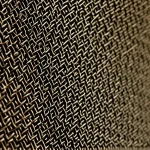Exploring Sustainable Materials in UK Women’s Fashion
Sustainable materials refer to eco-friendly fabrics that minimize environmental impact throughout their life cycle. In the context of UK women’s fashion, these materials prioritize resource efficiency, biodegradability, and reduced chemical use. Common examples include organic cotton, bamboo, hemp, and recycled polyester. These fabrics are chosen not only for their lower ecological footprint but also for their ability to meet quality and style demands without compromise.
The adoption of sustainable materials in UK women’s fashion has surged recently, reflecting broader sustainable fashion trends. Designers and brands are increasingly incorporating fabrics grown or manufactured with minimal water, pesticide, and energy use. Innovations like Tencel, derived from sustainably managed wood pulp, offer softness and breathability while reducing environmental strain. Moreover, recycled and upcycled fabrics have gained popularity, promoting circular economy principles.
Also to read : How Can UK Women’s Fashion Trends Inspire Eco-Friendly Choices?
This shift aligns with growing consumer awareness and regulatory encouragement. UK women’s fashion is evolving, embedding sustainability into both production and design. Eco-friendly fabrics not only reduce environmental harm but also challenge industry standards, creating new opportunities for ethical and responsible fashion. As sustainable materials become the norm, they reshape the market, offering attractive, long-lasting options for conscientious shoppers.
Key Benefits of Sustainable Materials for the Fashion Industry
Sustainable materials offer significant environmental benefits by reducing pollution and textile waste. Unlike conventional fabrics, eco-friendly fabrics often require less water, energy, and harmful chemicals during production. For example, organic cotton, a popular sustainable material in UK women’s fashion, uses natural pest control and avoids synthetic fertilizers, lowering chemical runoff into waterways. This directly diminishes environmental degradation.
In parallel : How Can UK Women’s Fashion Trends Inspire Eco-Friendly Choices?
In addition to ecological gains, sustainable materials support ethical fashion by fostering fair labour practices and promoting animal welfare. Many sustainable fabric producers adhere to strict social standards, ensuring safe working conditions and fair wages, which contrast sharply with some fast-fashion supply chains. Animal-derived sustainable fabrics, like responsibly sourced wool, focus on cruelty-free methods.
Another crucial advantage is the reduction of carbon footprint associated with fabric production. Eco-friendly fabrics generally emit fewer greenhouse gases through resource-efficient growing or recycling processes. This aligns with the broader goal of fashion sustainability, which aims to mitigate climate change impacts tied to apparel manufacturing.
Overall, the integration of sustainable materials in UK women’s fashion simultaneously advances environmental preservation and social responsibility, making it a cornerstone for future developments in the industry.
Exploring Sustainable Materials in UK Women’s Fashion
Sustainable materials in UK women’s fashion refer to eco-friendly fabrics designed to minimize environmental harm from production to disposal. These materials emphasize biodegradability, resource efficiency, and non-toxic processing, essential in the shift towards sustainable fashion trends. Notable examples include organic cotton, bamboo, hemp, and recycled polyester, which combine performance with reduced ecological impact.
Recent adoption of sustainable materials reflects an industry-wide pivot embracing innovative eco-friendly fabrics. Materials like Tencel, harvested from sustainably managed wood pulp, provide softness and durability, meeting the dual demands of quality and sustainability. UK designers increasingly integrate recycled fabrics and upcycled materials, fostering circular fashion principles that reduce textile waste and resource consumption.
This surge in usage within UK women’s fashion highlights commitment to responsible production aligned with consumer expectations. The growing preference for sustainable materials not only promotes environmental stewardship but also influences design choices, encouraging creativity rooted in sustainability. Overall, this movement redefines fashion norms by prioritizing fabrics that support a healthier planet without sacrificing style or function.
Exploring Sustainable Materials in UK Women’s Fashion
Sustainable materials in UK women’s fashion are defined by their ability to minimize environmental impact throughout production, use, and disposal. These eco-friendly fabrics combine biodegradability, reduced chemical use, and resource efficiency, making them essential components of current sustainable fashion trends. Among the most common examples are organic cotton, bamboo, hemp, and recycled polyester, each favored for their lower water and energy demands.
The UK fashion sector has seen a marked increase in adopting these materials. Innovations like Tencel, derived from sustainably managed wood pulp, offer a compelling blend of softness and durability, attracting designers seeking to balance style with sustainability. Additionally, recycled fabrics are gaining momentum, reflecting a commitment to circular economy principles within UK women’s fashion.
This trend is driven by consumer demand for responsible apparel and the industry’s dedication to eco-conscious practices. The increased use of sustainable materials not only helps lessen environmental harm but also encourages the development of fashion that aligns with ethical and environmental values. UK women’s fashion is thus evolving, with sustainable materials firmly embedded as a foundation of contemporary design and manufacturing.






